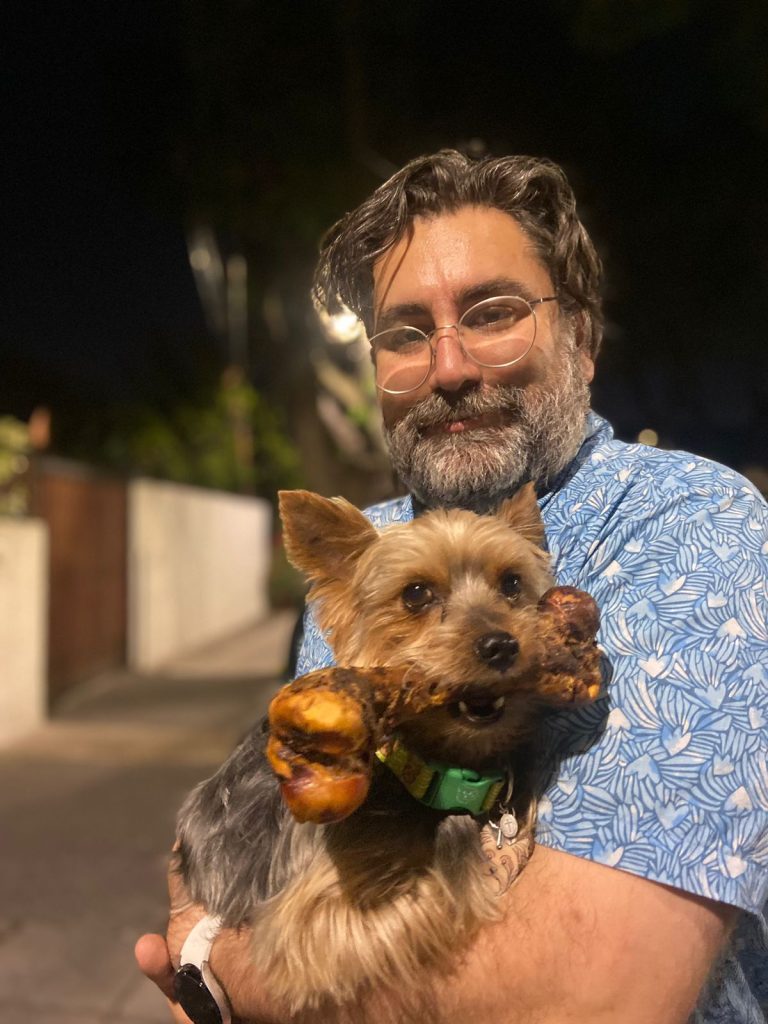
Postdoc experience opened the door to Novo Nordisk
This blog post depicts Enrique Toledo´s journey from academia to industry and his rise to his current position as the head of molecular disease of Novo Nordisk in Oxford. In addition to his role at Novo Nordisk, he is also a KI mentor (https://mymentor.ki.se) and regularly shares his experiences and advice with eager minds.
Enrique comes originally from the sunny shores of Chile and holds a PhD degree in molecular and cellular biology from Pontifical Catholic University of Chile. His project focused on the study of animal models of Alzheimer´s disease and the role of Wnt signaling pathways. However, his academic pursuits did not end here. Subsequently, he decided to leave Chile and embark on an adventure to Sweden, where he became a postdoctoral researcher at Karolinska Institutet (KI). He then studied neurodevelopmental biology and ventured in computational analysis, working in RNA- and CHIP-seq, to study gene activity and understand how proteins interact with DNA.
“And that’s how I then ended basically in Novo Nordisk”, he shares.

Not a walk in the park
According to Enrique, his postdoctoral studies granted him the experience needed for a position in Novo Nordisk, despite not being at first a full match in paper. Nonetheless, his experience and character culminated first in a successful interview and then being hired to his ever first industrial position.
Enrique acknowledges that his transition wasn´t just a walk in the park: there were many things to learn when transitioning from academia to industry, besides being a completely different environment:
“You go from a small group, your colleagues and PI; and in this case you are talking about an organization with thousands of people.”
“It was a steep learning curve”. The corporate world has a different work pace, and is focused on the translability and impact of the projects rather than the academic novelty, according to him. It was a constant adaptation and learning of a new environment.
Do what is important in the easiest way
Besides the importance of the technical knowledge acquired during his studies, Enrique emphasizes the importance of soft skills when moving to industry, such as communication skills, project managing, time managing and being able to efficiently discriminate what are the priorities at work.
“Trying to do what is important in the easy way; it sounds weird, but if you manage to do what is the most important and in the easiest way for you, you can do more. Another skill is to identify when to say no, not to people but to a project, to stop something. In an academic setting is very easy to keep a project alive because you want to publish, in the industrial setting we can say – okay this is not working, we stop it and that’s it.”
Balance between solitude and team work
Enrique´s daily work routine starts with quietude. At the office he checks emails and catches up on papers and prints, which he finds enjoyable. If working from home (WFH), Enrique prioritizes more complex tasks, such as planning and designing projects. He also regularly holds face to face or online meetings with colleagues at the office or based in Denmark or USA. He considers working at the office and “catching up with coworkers is a plus after few days of WFH” as a good balance between solitude and team-work. This seems to be the key for an effective performance at work.
Nowadays, Enrique lives in Oxford.
“I learnt that snow is much better than 5 degrees and raining,…but I wanted a change. Oxford is small compared to Stockholm but also a very nice place to live.”
Go for it!
Throughout his career in the pharma industry, Enrique has advanced in his position over the years. “The more you do something the better you will get. It´s about learning and putting in practice all hard and soft skills, and learning what to give an impact on.”
His advice for PhD students interested in transitioning to the industry is to consider undertaking an industrial postdoc and experience a bit of both worlds.
He also emphasizes that doing a postdoc may be beneficial when applying to industry.
“I was hired in this company for everything that I learned and did during my postdoc and not for what I did in my PhD studies”.
He pauses and concludes with some final thoughts.
“I don’t think there is a right path to do it. If you´re in doubt, just pack a suitcase, do your paper work, and go!”

0 comments